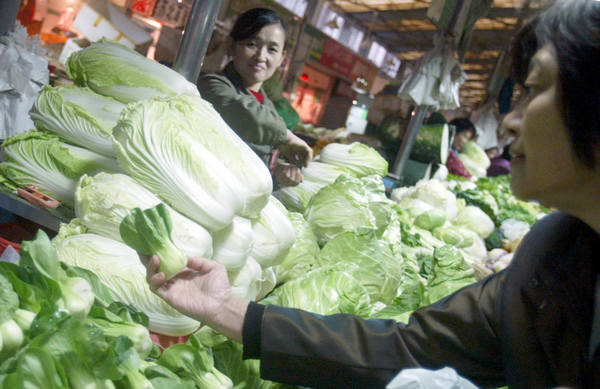Citizens feel inflation biting hard
 |
|
A woman buys vegetables at a market in Shanghai. Rising food prices are having an effect on people's wallets.[China Daily] |
Lin Yibai, a 27-year-old Shanghai resident, frowns at the steamed buns in a fast food store adjacent to his workplace.
Every morning he buys two buns, which costs three yuan (46 cents) for breakfast. But, from this year onwards, he has to buy four.
It's not because his appetite has expanded. Rather, the buns have shrunk.
To Lin and many other city dwellers in China, inflation is not just a set of official figures. Rising prices of food and daily necessities are having an effect on the wallets of the Chinese.
Lin counts the number of bites to gauge the value of his money. These days "it lasts no more than two bites," he sighed, referring to a steamed bun. In the past, he could enjoy five bites of a bun.
Buns, one of the most common foods in Shanghai, are the basis of Lin's inflation index.
"I don't have to wait for the government to tell me how much less my money is worth," he said.
"I can tell from the size of my buns."
"Almost every resident in Shanghai has his or her own price index on their major purchases, but I guess all the indices are pointing up," Lin said.
The National Bureau of Statistics (NBS) said on Wednesday that China's consumer price index (CPI) rose 5.3 percent in April compared to a year earlier, excluding housing costs.
Food prices, which account for nearly a third of the CPI basket, surged 11.5 percent, according to Sheng Laiyun, a spokesman for the NBS.
 0
0 






